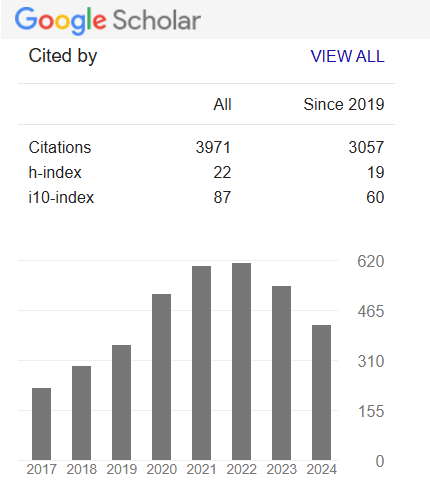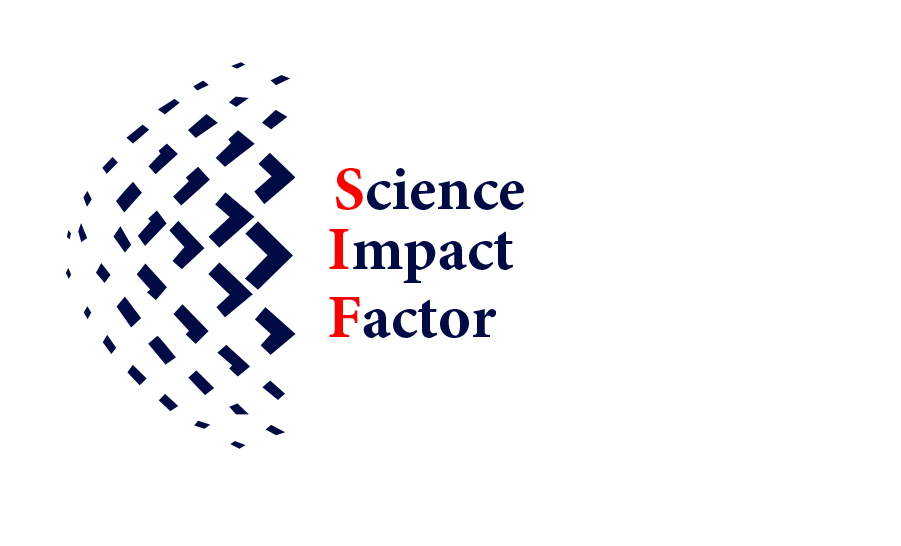MYH7 and MyBPC3 Gene Mutations Associated with Hypertrophic Cardiomyopathy: A Short Review
Keywords:
Hypertrophic Cardiomyopathy, HCM, MYH7, MyBPC3.Abstract
Hypertrophic cardiomyopathy (HCM) is a primary genetic disorder of the myocardium caused by mutations in sarcomeric proteins. It is typically hereditary, is the leading cause of sudden cardiac mortality in young people. Genetic screening for those at risk is now possible due to the discovery of mutations in several contractile protein genes that cause familial hypertrophic cardiomyopathy. Mutations in the cardiac myosin-binding protein C gene frequently do not manifest clinically until middle or advanced age. It has been suggested that HCM is a disease of contractile sarcomeric proteins since patients with the condition have been shown to have more than 100 mutations in nine genes that encode sarcomeric proteins. Among these, MYH7 and MyBPC3 genes are the most frequently implicated, accounting for over 50% of HCM cases worldwide. This review summarizes the genetic basis of HCM with a focus on MYH7 and MyBPC3 mutations, emphasizing their prevalence and clinical significance in the Vidarbha region of Maharashtra, India. The paper highlights the challenges and future prospects of genetic diagnostics in this population.
Keywords: , , ,
Downloads
References
Dhandapany, P. S., Sadayappan, S., & Taylor, D. M. (2009). Novel MYBPC3 mutations in South Asian populations. Journal of Molecular Diagnostics, 11(5), 408-415.
Marian, A. J., & Roberts, R. (2001). The molecular genetic basis for hypertrophic cardiomyopathy. Journal of molecular and cellular cardiology, 33(4), 655-670.
Maron, B. J., & Maron, M. S. (2013). Hypertrophic cardiomyopathy. The Lancet, 381(9862), 242-255.
Maron, B.J., Gardin, J.M., J.M. Flack, et al. (1995). Prevalence of hypertrophic cardiomyopathy in a general population of young adults. Echocardiographic analysis of 4111 subjects in the CARDIA study. Coronary Artery Risk Development in (Young) Adults Circulation, 92, pp. 785-789.
Massimo Buvoli, Micah Hamady, Leslie A. Leinwand, Rob Knight, 2008. Bioinformatics Assessment of β-Myosin Mutations Reveals Myosin's High Sensitivity to Mutations, Trends in Cardiovascular Medicine, Volume 18, Issue 4, Pages 141-149, ISSN 1050-1738, https://doi.org/10.1016/j.tcm.2008.04.001.
Montag, J., Petersen, B., Flogel, A.K. et al., (2018). Successful knock-in of Hypertrophic Cardiomyopathy-mutation R723G into the MYH7 gene mimics HCM pathology in pigs. Sci Rep 8, 4786. https://doi.org/10.1038/s41598-018-22936-z
Moolman, J. C., Corfield, V. A., Posen, B., Ngumbela, K., Seidman, C., Brink, P. A., & Watkins, H. (1997). Sudden death due to troponin T mutations. Journal of the American College of Cardiology, 29(3), 549-555.
Niimura, H., Bachinski, L. L., Sangwatanaroj, S., Watkins, H., Chudley, A. E., McKenna, W., ... & Bjornsdottir, H. (1998). Mutations in the gene for cardiac myosin-binding protein C and late-onset familial hypertrophic cardiomyopathy. New England Journal of Medicine, 338(18), 1248-1257.
Redwood, C. S., Moolman-Smook, J. C., & Watkins, H. (1999). Properties of mutant contractile proteins that cause hypertrophic cardiomyopathy. Cardiovascular research, 44(1), 20-36.
Satu, K. & Keijo, P. (2007). Genetics of dilated cardiomyopathy, Annals of Medicine, 39:2, 91-107, DOI: 10.1080/07853890601145821
Tanjore, R. R., Rangaraju, A., Kerkar, P. G., Calambur, N., & Nallari, P. (2008). MYBPC3 gene variations in hypertrophic cardiomyopathy patients in India. The Canadian journal of cardiology, 24(2), 127–130. https://doi.org/10.1016/s0828-282x(08)70568-3.
Waldmuller S., Sadayappan S., Saadi A. V., Selignow C., Pareppally G. R., et al., (2003). Novel deletions in MYH7 and MYBPC3 identified in Indian families with familial hypertrophic cardiomyopathy, Journal of Molecular and Cellular Cardiology, Volume 35, Issue 6, Pages 623-636, ISSN 0022-2828, https://doi.org/10.1016/S0022-2828(03)00050-6.
Watkins, H., Conner, D., Thierfelder, L., Jarcho, J. A., MacRae, C., McKenna, W. J., ... & Seidman, C. E. (1995). Mutations in the cardiac myosin binding protein–C gene on chromosome 11 cause familial hypertrophic cardiomyopathy. Nature genetics, 11(4), 434-437.
Downloads
Published
How to Cite
Issue
Section
License
Copyright (c) 2019 Author

This work is licensed under a Creative Commons Attribution-NonCommercial-NoDerivatives 4.0 International License.
Open Access This article is licensed under a Creative Commons Attribution 4.0 International License, which permits use, sharing, adaptation, distribution and reproduction in any medium or format, as long as you give appropriate credit to the original author(s) and the source, provide a link to the Creative Commons license, and indicate if changes were made. The images or other third party material in this article are included in the article’s Creative Commons license unless indicated otherwise in a credit line to the material. If the material is not included in the article’s Creative Commons license and your intended use is not permitted by statutory regulation or exceeds the permitted use, you will need to obtain permission directly from the copyright holder. To view a copy of this license, visit http://creativecommons.org/ licenses/by/4.0/











